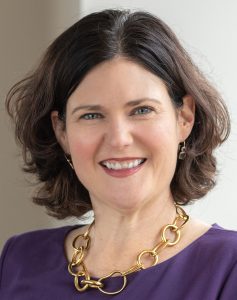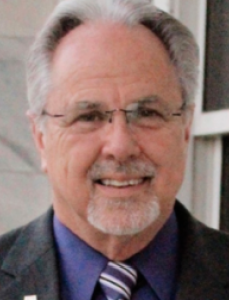The campaign against a new Texas law permitting school districts to hire unlicensed chaplains is gaining momentum just as Alabama legislators prepare to debate an identical measure in their upcoming session.
The Texas statute went into effect in September and gives districts until March 1 to vote for or against using ministers, as staff or volunteers, to perform functions typically carried out by trained and certified counselors. The Alabama bill includes identical provisions and would go into effect next fall if it is signed into law and adopted by school boards.
But the Texas law isn’t out of the woods. Despite its passage, it faces increasingly determined and organized opposition. Professional chaplains and religious freedom advocates, including the Baptist Joint Committee for Religious Liberty, are working to convince state school boards to reject the policy as unsafe for students and families.
“Across the state of Texas, chaplains and people of faith are raising their voices in support of the institutional separation of church and state,” said Amanda Tyler, BJC executive director, lead organizer of Christians Against Christian Nationalism and the mother of a student in the Dallas Independent School District.
“Our classrooms should be free from religious indoctrination. Houses of worship have the right and responsibility to lead in matters of religious education, and Texans are rightly wary of the government getting involved in such an important task,” she said. “It’s now up to concerned community members in the remaining districts to make sure their voices are heard before March 1.”
![]() And it’s clear those voices are being heard in many districts across the state. BJC’s tracker of the 25 largest Texas school districts shows 11 have voted against the use of unlicensed chaplains. The remainder had yet to vote as of Jan. 22.
And it’s clear those voices are being heard in many districts across the state. BJC’s tracker of the 25 largest Texas school districts shows 11 have voted against the use of unlicensed chaplains. The remainder had yet to vote as of Jan. 22.
Among the larger districts rejecting the law are Austin, Dallas, Frisco, El Paso, Houston and Fort Worth. In addition, BJC reported late last year that at least another 10 districts — including Brownsboro, Canutillo, Godley, McKinney and San Marcos — had rejected the chaplaincy provision.
“It’s not surprising that districts are rejecting this program. Trustees rightly are concerned that the expectations are vague, the risks are huge, and their constituents never asked for this in the first place,” said Bee Moorhead, executive director of Texas Impact.
Chaplains across the state have joined the fight, too, with more than 180 of the ministers signing a letter imploring all school board members in Texas to vote against the chaplaincy law. They described its provisions as damaging to public school children.
“Because of our training and experience, we know that chaplains are not a replacement for school counselors or safety measures in our public schools, and we urge you to reject this flawed policy option: It is harmful to our public schools and the students and families they serve,” the letter states.
The fact that chaplains can engage in proselytizing under the plan is threatening to students of other faiths or of no faith, the letter adds, saying paying unlicensed chaplains with education funds budgeted for school security also is disturbing.

Amanda Tyler
“Those funds are directed at — but not limited to — the roles of restorative discipline and justice practices, mental and behavioral health support, and suicide prevention, intervention and postvention. We are deeply concerned about using chaplains in these roles to provide those services, particularly as the law does not require any specific training or qualifications.”
BJC also is promoting a petition drive for “Texans of faith” opposed to the state’s school chaplaincy plan.
“These public school ‘chaplains’ are different from the professional chaplaincy programs in the military, hospitals or prisons,” the petition explains. “The new state law requires no qualifications or training before allowing ‘chaplains’ to interact with young, impressionable children. These unqualified ‘chaplains’ would trample the religious freedom of public school students, parents and staff. We believe that a child’s spiritual development is best left to parents — not the government.”
Alabama is likely to witness a similar debate early next month when its legislature considers draft legislation identical in part to the bill approved in Texas.
The similarity of the measures appears to be inspired by the National School Chaplain Association.”
The similarity of the measures appears to be inspired by the National School Chaplain Association, an Oklahoma-based group with a stated goal of bringing school chaplaincy programs to every state in the nation.
Citing Texas as its opening move in the campaign, the organization said school chaplains make schools and students safer. “The association believes spiritual care has long been absent from the school system. As a result, students are often left alone to navigate complex emotions without support from trusted adults or authority figures.”

Mark Gidley
In crafting Alabama House Bill 59, Republican lawmaker and Pentecostal pastor Mark Gidley inserted language found in the Texas bill: “A school district may employ a chaplain instead of a school counselor to perform the duties required of a school counselor under this title. A chaplain employed under this subsection is not required to be certified by the State Board for Educator Certification.”
Gidley asserts school children should enjoy the benefits of chaplaincy that other Alabamans do, AL.com reported. “The bottom line is this, and it’s very, very, very simple. We have chaplains for everything. We have chaplains in the military, we have chaplains for police. The list goes on and on and on.”
But the whole approach is misguided because it isn’t government’s job to disciple school children in the Christian faith, Tyler said. “Public schools are not the place for religious instruction. That is best left to houses of worship, religious institutions and families.”
Tyler previously said school chaplaincy as envisioned in the Texas bill is inspired by Christian nationalism. “Christian nationalism conflates religious and political authority, and our public schools should not be endorsing religion — they should continue to leave that up to the students and their families.”
Related articles:
100 chaplains urge Texas schools not to take the bait on school ‘chaplains’
Four groups warn Texas schools against new chaplaincy scheme


